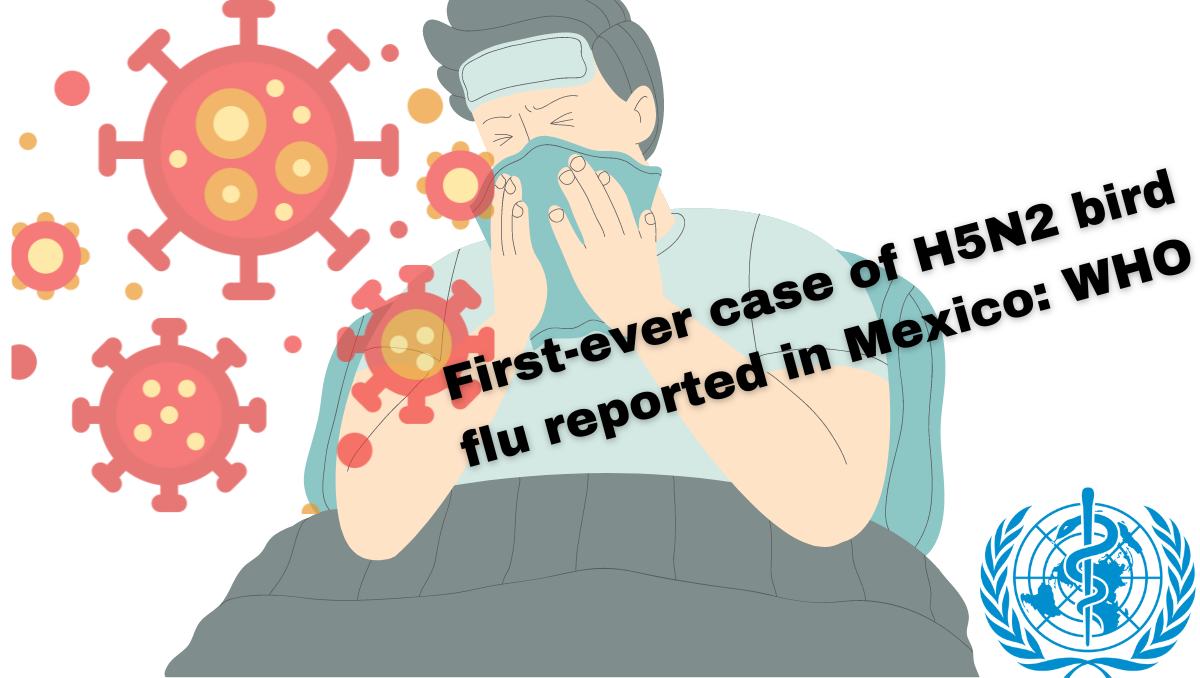The World Health Organization announced on Wednesday that a man in Mexico passed away after becoming infected with a form of bird flu that has never been linked to human illness.
Table of Contents
WHO report
A 59-year-old patient who had been admitted to the hospital in Mexico City tested positive for the virus.
One week after experiencing diarrhea, dyspnea, and a fever, the man passed away. The WHO said in a statement that this is the first lab-confirmed case of an individual catching the bird flu strain known as H5N2, raising concerns about a virus that has mainly gone unnoticed.
The patient, who was from central Mexico, had never been around chickens or other animals before.
The Mexican government is unaware of the location of his viral exposure, despite the fact that the state in which the individual resided has documented cases of the avian influenza strain in poultry.
The WHO claimed that following an investigation, no new cases were detected, indicating that the current danger imposed by the H5N2 virus on the general public is low.
Mexico’s health ministry said on Wednesday that the man infected with H5N2 had other underlying medical issues, such as chronic kidney disease, type 2 diabetes, and long-standing hypertension.
The WHO further stated, citing the patient’s family, that he had been confined for three weeks prior to the start of acute symptoms in mid-April. The man passed away on April 24, even though he was admitted to the hospital.
On May 23, Mexican authorities confirmed that a sample from the deceased guy had the virus, and they notified the World Health Organization of the fatal case.
Although the man in Central Mexico represents the first human case of H5N2 confirmed by a lab, scientists have found others who have antibodies that may indicate previous illnesses.
Since H5N2 hasn’t demonstrated the ability to spread between humans, epidemiologist Katrine Wallace of the University of Illinois Chicago School of Public Health believes that there is no risk to the general public’s health.
Accordingly, she continued, it’s alarming that the patient’s history of exposure to animals is unknown, as this is the most likely source of the illness.
In addition to farms, backyards, and other locations close to the man’s residence, the Mexican government has started keeping an eye out for H5N2 in wild birds in the wetlands of Tlahuac in Mexico City. According to a statement released by the health ministry on Wednesday, no sick birds have been found thus far.
Bird flu H5N1 outbreak in US
The H5N1 infection in livestock in the US is still spreading geographically.
Ten states have reported finding avian flu in herds after Iowa declared on Wednesday that it had discovered contaminated cows.
Thus far this year, the US has seen three farmworkers test positive for bird flu; two of these are in Texas and one is in Michigan.
One of them had a cough, and they both had eye irritation symptoms. The US H5N1 outbreak has not been linked to any fatal human cases.
About Bird flu
Bird flu also referred to as avian influenza, has attracted a lot of interest recently since it poses a risk to human and animal health.
This virus mainly affects birds, but it can also occasionally infect humans, raising worries about pandemics in world health.
At the national, regional, and international levels, cooperation and coordination are needed to combat the avian influenza threat.
A number of international organizations collaborate to monitor and address avian influenza outbreaks, share information, and assist nations in putting into place efficient control measures.
Understanding the origins, transmission, symptoms, prevention, and current efforts to battle this infectious disease is crucial.
